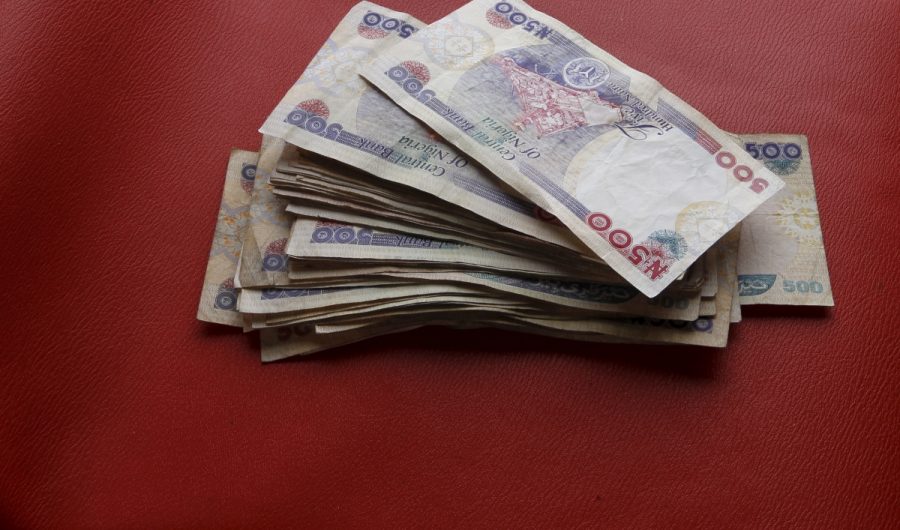A few days ago, the International Monetary Fund (IMF) disbursed the sum of $3.4 billion to the Central Bank of Nigeria.
Mr. Mitsuhiro Furusawa, Deputy Managing Director and Acting Chairman of IMF, spoke recently about the challenges in Nigeria’s economy. He said:
“The COVID-19 outbreak—magnified by the sharp fall in international oil prices and reduced global demand for oil products—is severely impacting economic activity in Nigeria. These shocks have created large external and financing needs for 2020.
“Additional declines in oil prices and more protracted containment measures would seriously affect the real and financial sectors and strain the country’s financing.”
The country’s foreign reserve has continued its bearish trend, dropping by $5.09 billion from $38.53 billion in early January to $33.44 billion.
(READ MORE: Naira hits N388 to $1 at I&E as IMF dollars boost currency markets )
“The probability of significant foreign investment outflows due to weak oil prices and higher risks suggests that Nigeria would need more than the $3.4 billion RFI facility to strengthen the case for its currency in the near-to-medium term (we forecast current account deficit at $13.5 billion in 2020 estimates).
“We, therefore, believe that after a short respite from the $3.4 billion, there could be renewed pressures on reserves and currency if the oil price remains low and foreign investors intensify exits as currency controls are lifted.”
Philip Anegbe continued by identifying what he thought was the future value of the Naira.
“Pressures on reserves and a need to adjust the currency to a more manageable level are likely to force an adjustment of the currency closer to our fair value estimate of N440/$ by year-end.
“However, in line with the pattern in most oil-exporting economies, Nigeria is unlikely to depart from its currency peg regime.”
Nairametrics has also obtained even more hawkish predictions of what could happen to the exchange rate in a few months, with some believing that it could fall to as low as N480 by year-end and over N500 next year. They cite Nigeria’s weakening FX positions, the fall in oil prices, and the massive drop in Government revenues.
Consequently, the Federal Government has very limited alternatives to cover any shortfall from oil revenue. It recently implemented aggressive tax policies via the Finance Act, and introduced stamp duties, but those can’t be enough to cover Nigeria’s deficit in oil revenue.
On Thursday, investors were shocked to receive a Naira depreciation at the I&E window with July futures closing at N394/$1.
(READ MORE: Nigeria gets $3.4 billion disbursement from IMF, interest rate 1)
Moshood Bode Abolade, Investment Officer at Africa50 Infrastructure Investments, spoke to Nairametrics in a phone chat interview, explaining why Nigeria’s oil giant, Nigeria National Petroleum Corporation (NNPC), is unlikely to contribute much to FG’s revenue, meaning lower oil earnings anticipated.
He said:
“The low oil prices/weak demand will not affect Nigerian producers equally; the IOCs and some indigenous players have a long term off-take contract which obligates buying counterparties to purchase agreed volumes on the one hand. On the other hand, NNPC leads the contingent of producers that do not use long terms contracts, therefore, leaving them to demand risk.
“It is important to note that NNPC’s production is tied to that of IOCs and large indigenous players (who have crude off-take contracts) in line with economic interest under the joint ventures. This means that while NNPC’s co-ventures are producing and selling, it might be forced to incur storage costs as it struggles to find buyers in the spot market.
“NNPC’s situation calls for cost discipline if it is still to contribute to Government revenues. And it has, in fact, started to closely scrutinize JV budgets; a practice that was not a priority until the effects of COVID-19 and the price war hit.”
However, with these colossal challenges, Nigeria’s stakeholders must support the diversification of Nigeria’s economy. It is the major solution to surviving the present environment of global economic uncertainty, with the huge swings in crude oil prices.
